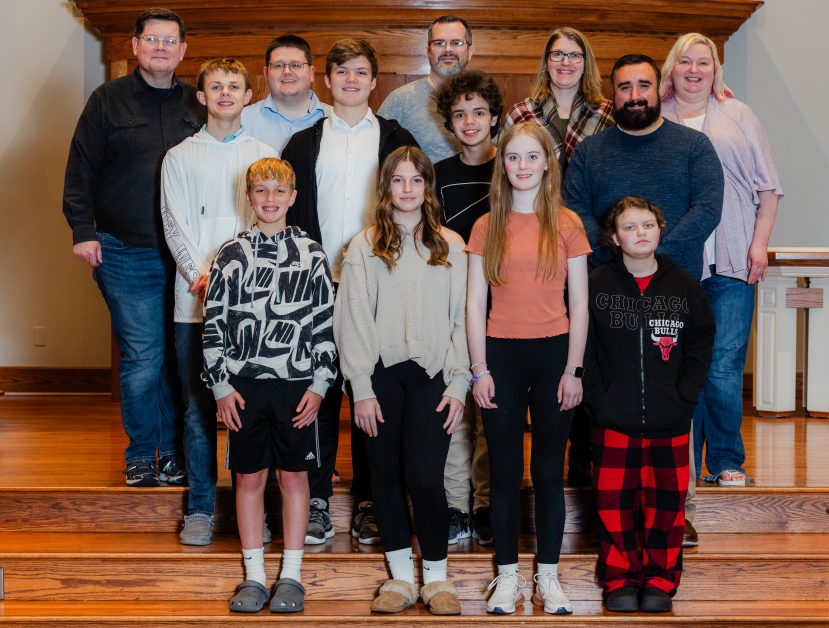
About the time that this is published on Friday, I’ll be in the dentist’s chair getting my regular cleaning. About a month ago, I got an email that kind of looked like the graphic above asking me to click to confirm or call to reschedule. Then last Friday, I got another one. I appreciate these reminders. I thought my appointment was the week prior and that I had missed it!
We’re celebrating confirmation with three of our students this Sunday – Liv Cahill, Jaclyn Eakins, and Charlie Popplewell – along with students from Baker Memorial, Batavia, and Wesley Aurora United Methodist Churches. Confirmation is much more than clicking yes to let Jesus know we’re still committed.

Confirmation, in the pure technical definition, is about making firm the vows made for us at baptism. In essence, we’re clicking ‘yes’ to accepting Jesus as our savior and putting our trust in his grace, serving him as part of a community and resisting and rejecting the power of sin and evil – all in alignment with faithful Christians of every tribe and generation.
While the technical actions are of great importance, so is our theology. In fact, it’s our theology of confirmation which invites all of us to make firm our vows again, and to continue this journey all of our lives, instead of ‘graduating’ from growing in the faith.
Confirmation is one of the means of grace celebrated in the Methodist tradition, alongside baptism and communion. This concept of grace emphasizes the outward signs of God’s unconditional love towards humanity. In that way, confirmation, along with baptism and communion, serves as a tangible expression of God’s love and grace. However, in our tradition, confirmation is not a sacrament like baptism and communion; we only lift those practices (or ordinances) that Jesus told us to practice -baptism and communion- as sacraments.
Yet, confirmation allows us to remember our baptism and affirm our commitment to the Christian faith. Just as baptism symbolizes initiation into the community of faith and the forgiveness of sins, confirmation enables us to embrace the means of grace bestowed upon us in our baptism.
Similarly, communion, or the Lord’s Supper, serves as a reminder of Christ’s sacrificial love and the new covenant between God and humanity. Through the bread and cup, we experience the outward signs of God’s love towards us.
John Wesley, the founder of Methodism, identified other means of grace, such as prayer, Scripture reading, meditation, and fellowship. These practices, while not ordained by Jesus like baptism and communion, still serve as avenues through which God’s grace is experienced and shared.
Ultimately, the celebration of confirmation, baptism, and communion underscores the reality of God’s unconditional love and grace towards humanity. By participating in these sacraments and practicing acts of service and love (means of grace), we become channels through which God’s grace flows to others, fulfilling the commandment to love one another as God loves us. Way better than getting a cleaning at the dentist. (Though, my dentist does a great job and I enjoy my visits).
This weekend, I invite us to not just celebrate our confirmands but to celebrate this means of grace for all of us and all the world!

